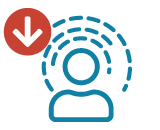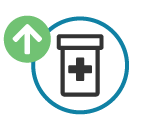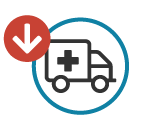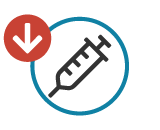OAT Clinic
Opioid Agonist Treatment (OAT) is a first-line treatment that uses prescribed medications like suboxone or methadone in a supervised clinical setting to treat people who have opioid use disorder. There is no referral required to access this service.
Opioid use disorder is a medical condition characterized by a problematic pattern of opioid use, such as addiction to pain killers like Percocet, OxyContin, fentanyl, and heroin. By providing opioid agonist treatment, we can reduce the possibility of people overdosing or dying from opioid use and improve the health and well-being of clients and their families.








